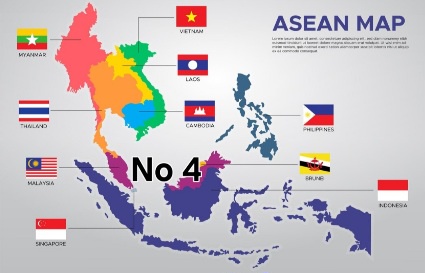Malaysia's Education, 4th place in Asea: Failure of McKinsey's RM20 million Blueprint?
10 Mar 2024 • 9:00 AM MYT
Mihar Dias
A behaviourist by training, a consultant and executive coach by profession

Credit: Klaten
By Mihar Dias (C) Copyright March 2024
Puchong Member of Parliament Yeo Bee Yin recently highlighted a critical issue plaguing Malaysia's education system – its inability to produce students capable of competing regionally, let alone globally.
Yeo's concerns are underscored by Malaysia's dismal performance in the Programme for International Student Assessment (PISA), where it ranks 60th, 53rd, and 52nd out of 80 countries in reading, mathematics, and science, respectively.
The Malaysia Education Blueprint 2013-2025, launched with much fanfare and a hefty price tag of RM20 million, paid to McKinsey aimed at elevating Malaysia's education standards to the top third of PISA standings by 2028.
However, 11 years since its inception, Malaysia remains firmly entrenched in the bottom third, lagging behind regional peers like Singapore, Vietnam, and Brunei.
What went wrong? Despite the blueprint's noble intentions, its implementation has fallen short.
One key flaw lies in its failure to address the root causes of Malaysia's educational woes.
The focus on rote memorization and examination-centric learning has stifled creativity and critical thinking among students. This outdated approach is ill-suited to meet the demands of the 21st century, where skills like problem-solving, communication, and adaptability are paramount.
Additionally, the blueprint's reliance on expensive international consultants like McKinsey raises questions about its cost-effectiveness. Instead of pouring millions into external consultations, resources could have been better allocated to improving teacher training, curriculum development, and school infrastructure.
Moreover, Malaysia's education system is plagued by systemic issues such as overcrowded classrooms, inadequate resources, and a lack of qualified teachers in rural areas. These issues, if left unaddressed, will continue to hinder Malaysia's educational progress.
Yeo's comparison with Vietnam is particularly telling. While Malaysia struggles to keep pace, Vietnam's education system is rapidly advancing, thanks to its focus on holistic education and innovative teaching methods.
If Malaysia is to compete with rising stars like Vietnam, it must urgently overhaul its education system to prioritise skills over memorization, creativity over conformity, and innovation over tradition.
In conclusion, Malaysia's education system is at a crossroads. The Malaysia Education Blueprint 2013-2025 has failed to deliver on its promises, leaving Malaysia's future generation ill-prepared for the challenges ahead. It is time for a fundamental rethink of Malaysia's education policies, one that prioritizes quality over quantity, innovation over tradition, and creativity over conformity.
Only then can Malaysia hope to reclaim its status as an educational powerhouse in the region.
"overcrowded classrooms, inadequate resources, and a lack of qualified teachers in rural areas"
ReplyDeleteAin't they the same problems plague Vietnam, Thailand, Brunei etc etc?
The big pink elephant that this article fails to mention is the ketuanan narratives & it's f*cked giatunas scheming!
Malaysia has an excellent education system.
ReplyDeleteIt's priorities just happen to lie with 3R - Race Religion Royalty.
From that point I'd view they are doing Very well.